In Focus This Week
Modernizing Voter List Maintenance
By Michael Morse, Rachel Orey, and Joann Bautista
The Bipartisan Policy Center
Voter registration lists are widely regarded as the backbone of election administration. List maintenance—the process of keeping those lists accurate and up to date—has long been a quiet feature of election administration but has come under increasing scrutiny in recent years.
 The Bipartisan Policy Center published a new report outlining how well-crafted, evidence-based voter list maintenance policies can support both voter access and election integrity, with a focus on policies concerning voter mobility and citizenship verification.
The Bipartisan Policy Center published a new report outlining how well-crafted, evidence-based voter list maintenance policies can support both voter access and election integrity, with a focus on policies concerning voter mobility and citizenship verification.
The report is endorsed by BPC’s Task Force on Elections, a group of 41 state and local election officials from 26 states.
Key recommendations include:
Policymakers should revisit the balance between federal procedural protections and the quality of evidence that a voter has moved or is otherwise ineligible.
The National Voter Registration Act’s procedural protections make it hard for election officials to act quickly on even high-quality evidence that voters have moved, while a relative lack of protections in the citizenship verification process means that eligible voters get caught in efforts to remove noncitizens from the rolls.
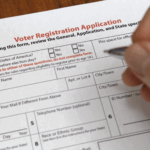 Election officials should explore data-sharing agreements with their department of motor vehicles to backfill Social Security numbers from voters’ driver’s license records.
Election officials should explore data-sharing agreements with their department of motor vehicles to backfill Social Security numbers from voters’ driver’s license records.
Departments of motor vehicles are allowed to collect Social Security numbers (SSNs), but federal laws have historically limited the collection of SSNs in election administration. Several states’ election offices and departments of motor vehicles have worked together to backfill SSNs from voters’ driver’s license records, helping to create more complete voter lists.
Increasing election officials’ access to SSN data would provide officials with a unique national identifier for voters and lead to better inter- and intrastate data matching. It would also improve offices’ ability to use systems like the Systematic Alien Verification for Entitlements (SAVE) system for voter citizenship verification in the future.
State policymakers should invest in technology and modernizing infrastructure at both state election offices and departments of motor vehicles.
Driver’s license transactions are one of the best opportunities for election officials to learn when a voter has moved, but outdated technology at motor vehicle departments and election offices limits timely, accurate registration updates. Investing in secure, 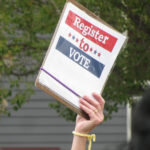 interoperable systems would improve data sharing and reduce errors.
interoperable systems would improve data sharing and reduce errors.
Federal law should incentivize participation in an interstate data-sharing program that meets minimum standards for privacy, accuracy, and transparency.
Roughly 1 in 5 moves within the United States occur between states, making interstate data sharing crucial to accurate lists. By centralizing data sharing and matching, interstate data-sharing programs often improve intrastate list maintenance efforts, as well.
The full report identifies additional challenges that election officials face in voter list maintenance—including limitations in the National Change of Address system, voters’ access to documentary proof of citizenship, and questions about the USCIS SAVE system—and lays out practical policy solutions to improve list maintenance to the benefit of administrators and voters alike.
Read the full report here.
electionline Daily News Email
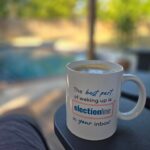 What’s the best part of waking up? electionline Daily News in your inbox of course so be sure to sign up for your daily dose.
What’s the best part of waking up? electionline Daily News in your inbox of course so be sure to sign up for your daily dose.
Each morning you’ll receive the top headlines of the day, plus a listing of states featured in that day’s news round up.
To sign up, simply visit our site and provide us with your email and you’ll begin receiving the news in your inbox each morning.
We Google so you don’t have to!
Election News This Week
 Federal Update: According to a report from NPR, tens of millions of voters have had their citizenship status and other information checked using a revamped tool offered by the Trump administration, even as many states are refusing or hesitating to use it because of outstanding questions about the system. U.S. Citizenship and Immigration Services (USCIS) says election officials have used the tool to check the information of more than 33 million voters — a striking portion of the American public, considering little information has been made public about the tool’s accuracy or data security. The latest update to the system, known as SAVE, took effect Aug. 15 and allows election officials to use just the last four digits of voters’ Social Security numbers — along with names and dates of birth — to check if the voters are U.S. citizens, or if they have died. The upgrade makes the tool far more accessible, since it now aligns with the information most states collect or have access to for most voters. But the Department of Homeland Security (DHS), which houses USCIS, has not responded to questions about the system from members of Congress, and numerous election officials NPR spoke with expressed concern about what else the Trump administration could do with the data it acquires from states. “There’s still uncertainty about what is happening, what happens to the data that are shared with USCIS,” Charles Stewart, who directs the MIT Election Data and Science Lab, told NPR. “I don’t know if this means that the USCIS now has a depository of one-sixth of all [the country’s] registered voters.” According to Reuters, the U.S. Justice Department is in talks with Homeland Security Investigations about transferring the sensitive voter roll data it has collected from states for use in criminal and immigration-related investigations, according to government documents seen by Reuters. The voter registration data was gathered over the last several months by the DOJ’s Civil Rights Division, which has sent requests for voter registration-related information to at least 24 states. Of those, the division requested a complete list of all registered voters from at least 22 states, according to a tracker maintained by the Brennan Center for Justice and letters reviewed by Reuters.
Federal Update: According to a report from NPR, tens of millions of voters have had their citizenship status and other information checked using a revamped tool offered by the Trump administration, even as many states are refusing or hesitating to use it because of outstanding questions about the system. U.S. Citizenship and Immigration Services (USCIS) says election officials have used the tool to check the information of more than 33 million voters — a striking portion of the American public, considering little information has been made public about the tool’s accuracy or data security. The latest update to the system, known as SAVE, took effect Aug. 15 and allows election officials to use just the last four digits of voters’ Social Security numbers — along with names and dates of birth — to check if the voters are U.S. citizens, or if they have died. The upgrade makes the tool far more accessible, since it now aligns with the information most states collect or have access to for most voters. But the Department of Homeland Security (DHS), which houses USCIS, has not responded to questions about the system from members of Congress, and numerous election officials NPR spoke with expressed concern about what else the Trump administration could do with the data it acquires from states. “There’s still uncertainty about what is happening, what happens to the data that are shared with USCIS,” Charles Stewart, who directs the MIT Election Data and Science Lab, told NPR. “I don’t know if this means that the USCIS now has a depository of one-sixth of all [the country’s] registered voters.” According to Reuters, the U.S. Justice Department is in talks with Homeland Security Investigations about transferring the sensitive voter roll data it has collected from states for use in criminal and immigration-related investigations, according to government documents seen by Reuters. The voter registration data was gathered over the last several months by the DOJ’s Civil Rights Division, which has sent requests for voter registration-related information to at least 24 states. Of those, the division requested a complete list of all registered voters from at least 22 states, according to a tracker maintained by the Brennan Center for Justice and letters reviewed by Reuters.
 Remembering September 11: Today, September 11, 2025 marks 24 years since the terrorist attacks on New York City, the Pentagon and Shanksville, Pennsylvania that left nearly 3,000 people dead and forever changed the nation. It was also an election day in New York. Back in 2021, on the 20th anniversary of the attacks, we wrote about what that day was like for Douglas A. Kellner, former co-chair of the New York State Board of Elections, who was Democratic commissioner from Manhattan on the New York City Board of Elections at the time and Thomas Wilkey, current Election Center board chair, who was executive director of the New York State Board of Elections at the time.
Remembering September 11: Today, September 11, 2025 marks 24 years since the terrorist attacks on New York City, the Pentagon and Shanksville, Pennsylvania that left nearly 3,000 people dead and forever changed the nation. It was also an election day in New York. Back in 2021, on the 20th anniversary of the attacks, we wrote about what that day was like for Douglas A. Kellner, former co-chair of the New York State Board of Elections, who was Democratic commissioner from Manhattan on the New York City Board of Elections at the time and Thomas Wilkey, current Election Center board chair, who was executive director of the New York State Board of Elections at the time.
 Election Office News: Polk County, Iowa has officially moved its election headquarters out of downtown and into a new office on Des Moines’ north side. The office space at the county’s River Place building was unveiled, Sept. 3, and replaces the longtime site at 120 Second Ave., a century-old building county leaders said had become too cramped, too costly to repair and unsafe for voters forced to wait outside in long lines. This fall, the Linn County, Oregon clerk’s office will be moving to a new building it purchased in 2023 along the Albany riverfront. The Summit County, Ohio board of elections recently moved into a new location. The Ouachita Parish, Louisiana Registrar of Voters has permanently moved to 701 Saint John St. in Monroe. The Geauga County, Ohio Board of Elections voted in favor of moving to its new location in the basement of the new county office building. The Guadalupe County, Texas Elections Office, who moved in this week to their much larger accommodations on the edge of Seguin from their former cramped quarters downtown. The additional elbow room and ability to better serve the public are welcome additions, Guadalupe County Elections Administrator Lisa Hayes said. “It’s so exciting,” Hayes said about the possibilities that come along with her office’s additional square footage. “You don’t know how squished we were in the last building. It’s great.” The Monroe County, New York Board of Elections has left its longtime home in the county office building on West Main Street and on Monday will open the doors of its new facility in downtown Rochester. Polk County, Florida Supervisor of Elections Melony Bell announced plans to bring the elections office back to the county seat of Bartow. The Swain County, North Carolina board of elections has moved to a new location. Volusia County, Florida‘s Supervisor of Elections office has a new home in DeLand. The new location allows Supervisor of Elections Lisa Lewis and her team to have more room and have everything in one location, she said. The warehouse had been in a separate location. “We’re able to better serve them (voters) being all in one location, especially … those that come out and watch our testing with the Canvassing Board,” she said. Tompkins County, New York officials released a statement committing to keeping the Board of Elections offices in the city of Ithaca. The announcement came after public concern mounted over plans to temporarily relocate the board of elections to a property in Lansing. A $5.3 million remodel has boosted security and efficiency at the Clark County, Washington Elections Office. The Project doubled the work area for an office handling almost double the number of ballots it saw 20 years ago. Sumter County, Florida recently hosted a ribbon-cutting ceremony to celebrate the completion of construction on its new Supervisor of Elections facility. The building is 26,773 square feet and was designed to accommodate growing voter population and election administration needs. It will also provide secure and centralized storage for all voting equipment, eliminating the need for external storage containers. The Mahoning County, Ohio Board of Elections tabled the idea of getting an attorney to sue the county commissioners in a meeting this week. The board has been long asking to move to a new building and considered a lawsuit to try and speed up the process. “Until I set my hair on fire nothing got done and I don’t want to just have a meeting and then in a year from now we’re in the same place,” David Betras, the Chairman of the Mahoning County Board of Elections said. And in Cuyahoga County, Ohio where the board of elections moved into a new building in June, rainwater and crumbling cement in the parking garage damaged two expensive machines that process mail-in ballots. Elections staff started noticing water leaking in August, not in the new building itself, but in the enclosed part of the parking garage that houses the county’s vote-by-mail operation.
Election Office News: Polk County, Iowa has officially moved its election headquarters out of downtown and into a new office on Des Moines’ north side. The office space at the county’s River Place building was unveiled, Sept. 3, and replaces the longtime site at 120 Second Ave., a century-old building county leaders said had become too cramped, too costly to repair and unsafe for voters forced to wait outside in long lines. This fall, the Linn County, Oregon clerk’s office will be moving to a new building it purchased in 2023 along the Albany riverfront. The Summit County, Ohio board of elections recently moved into a new location. The Ouachita Parish, Louisiana Registrar of Voters has permanently moved to 701 Saint John St. in Monroe. The Geauga County, Ohio Board of Elections voted in favor of moving to its new location in the basement of the new county office building. The Guadalupe County, Texas Elections Office, who moved in this week to their much larger accommodations on the edge of Seguin from their former cramped quarters downtown. The additional elbow room and ability to better serve the public are welcome additions, Guadalupe County Elections Administrator Lisa Hayes said. “It’s so exciting,” Hayes said about the possibilities that come along with her office’s additional square footage. “You don’t know how squished we were in the last building. It’s great.” The Monroe County, New York Board of Elections has left its longtime home in the county office building on West Main Street and on Monday will open the doors of its new facility in downtown Rochester. Polk County, Florida Supervisor of Elections Melony Bell announced plans to bring the elections office back to the county seat of Bartow. The Swain County, North Carolina board of elections has moved to a new location. Volusia County, Florida‘s Supervisor of Elections office has a new home in DeLand. The new location allows Supervisor of Elections Lisa Lewis and her team to have more room and have everything in one location, she said. The warehouse had been in a separate location. “We’re able to better serve them (voters) being all in one location, especially … those that come out and watch our testing with the Canvassing Board,” she said. Tompkins County, New York officials released a statement committing to keeping the Board of Elections offices in the city of Ithaca. The announcement came after public concern mounted over plans to temporarily relocate the board of elections to a property in Lansing. A $5.3 million remodel has boosted security and efficiency at the Clark County, Washington Elections Office. The Project doubled the work area for an office handling almost double the number of ballots it saw 20 years ago. Sumter County, Florida recently hosted a ribbon-cutting ceremony to celebrate the completion of construction on its new Supervisor of Elections facility. The building is 26,773 square feet and was designed to accommodate growing voter population and election administration needs. It will also provide secure and centralized storage for all voting equipment, eliminating the need for external storage containers. The Mahoning County, Ohio Board of Elections tabled the idea of getting an attorney to sue the county commissioners in a meeting this week. The board has been long asking to move to a new building and considered a lawsuit to try and speed up the process. “Until I set my hair on fire nothing got done and I don’t want to just have a meeting and then in a year from now we’re in the same place,” David Betras, the Chairman of the Mahoning County Board of Elections said. And in Cuyahoga County, Ohio where the board of elections moved into a new building in June, rainwater and crumbling cement in the parking garage damaged two expensive machines that process mail-in ballots. Elections staff started noticing water leaking in August, not in the new building itself, but in the enclosed part of the parking garage that houses the county’s vote-by-mail operation.
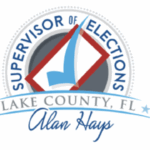 Team Work for a Cause: The Lake County, Florida Supervisor of Elections staff put the “fun” in fundraiser this summer through a series of competitions and activities to raise money to benefit a local nonprofit. From auctions, bake sales, penny wars and more, the collective fun-loving team of professionals raised over $1300 for a randomly chosen charitable organization Alan Hays, Lake County Supervisor of Elections, fully supported the summertime activity that was put forward for consideration. “I have the privilege of leading a team of champions who have been working non-stop for 18 months,” said Hays. “This provided a much-needed brain-break as well as an opportunity for the team to joyfully give to a community charity they care about. “I couldn’t be prouder of my team for their generosity.” During their September monthly staff meeting, the monetary donation was presented to Linda Krupski, founder of LovExtension, a 501(c)(3), volunteer organization that supports the under-served elderly and disabled communities in Lake County.
Team Work for a Cause: The Lake County, Florida Supervisor of Elections staff put the “fun” in fundraiser this summer through a series of competitions and activities to raise money to benefit a local nonprofit. From auctions, bake sales, penny wars and more, the collective fun-loving team of professionals raised over $1300 for a randomly chosen charitable organization Alan Hays, Lake County Supervisor of Elections, fully supported the summertime activity that was put forward for consideration. “I have the privilege of leading a team of champions who have been working non-stop for 18 months,” said Hays. “This provided a much-needed brain-break as well as an opportunity for the team to joyfully give to a community charity they care about. “I couldn’t be prouder of my team for their generosity.” During their September monthly staff meeting, the monetary donation was presented to Linda Krupski, founder of LovExtension, a 501(c)(3), volunteer organization that supports the under-served elderly and disabled communities in Lake County.
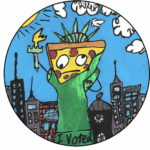 Sticker News: The Ulster County, New York Board of Elections has announced the winning design for its 2025 “I Voted” Sticker. According to the county, the design, “Pizza Liberty” features the Statue of Liberty with a pizza slice as its face, designed by a sixth grade student. Officials said the student, Ryker Darmanin, has created the pizza character for other contests but added the Statue of Liberty for the sticker. “Darmanin’s outstanding design offers a fun and engaging way to celebrate civic participation,” the county board of elections said. The county began the contest in April and reported receiving submissions from 376 students across the county. The top six designs were announced in July, offering voters a last chance to pick a sticker, which officials said garnered 7,720 votes. Of those votes, Darmanin’s design received 25.84% of those votes. And because we know this matters to some of you in the elections world, we’d like to point out that there does not appear to be any pineapple on the pizza! A new “I Voted” sticker was revealed in Thurston County, Washington, as part of a campaign to strengthen voter
Sticker News: The Ulster County, New York Board of Elections has announced the winning design for its 2025 “I Voted” Sticker. According to the county, the design, “Pizza Liberty” features the Statue of Liberty with a pizza slice as its face, designed by a sixth grade student. Officials said the student, Ryker Darmanin, has created the pizza character for other contests but added the Statue of Liberty for the sticker. “Darmanin’s outstanding design offers a fun and engaging way to celebrate civic participation,” the county board of elections said. The county began the contest in April and reported receiving submissions from 376 students across the county. The top six designs were announced in July, offering voters a last chance to pick a sticker, which officials said garnered 7,720 votes. Of those votes, Darmanin’s design received 25.84% of those votes. And because we know this matters to some of you in the elections world, we’d like to point out that there does not appear to be any pineapple on the pizza! A new “I Voted” sticker was revealed in Thurston County, Washington, as part of a campaign to strengthen voter 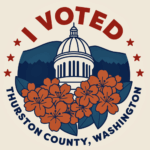 registration and participation. The unveiling coincided with the Thurston County Board of County Commissioners endorsement of a resolution that proclaimed Sept. 16 as National Voter Registration Day. The board approved the resolution at a meeting on Tuesday, Sept. 2. The proclamation states that “the strength of our democracy depends on the willingness of our citizens to participate by choosing the people who will lead us and by voicing their opinions on important matters that will come before the voters on Election Day.” The sticker’s design, created by Thurston County resident Alexis Trono, incorporates the Washington Capitol dome and rhododendrons with a modern take on the red, white and blue palette. The Thurston County Auditor’s Office said the design was chosen through a public submission process for its “strong sense of place, artistic quality, and ability to inspire civic pride.”
registration and participation. The unveiling coincided with the Thurston County Board of County Commissioners endorsement of a resolution that proclaimed Sept. 16 as National Voter Registration Day. The board approved the resolution at a meeting on Tuesday, Sept. 2. The proclamation states that “the strength of our democracy depends on the willingness of our citizens to participate by choosing the people who will lead us and by voicing their opinions on important matters that will come before the voters on Election Day.” The sticker’s design, created by Thurston County resident Alexis Trono, incorporates the Washington Capitol dome and rhododendrons with a modern take on the red, white and blue palette. The Thurston County Auditor’s Office said the design was chosen through a public submission process for its “strong sense of place, artistic quality, and ability to inspire civic pride.”
Personnel News: Gabriel Sterling has announced his candidacy for Georgia secretary of state. John Westercamp has been appointed to the Indiana Election Commission. Former Garland County Judge Rick Davis has been appointed to the Arkansas State Board of Election Commissioners. Former state Sen. Adam Hollier, a Democrat from Detroit, is expected to end his campaign for the U.S. House in the coming days and to launch a bid for Michigan secretary of state. Debbie Wilson has been hired as the interim registrar of voters for Albemarle County, Virginia. Guy Aber is the new deputy director of the Montgomery County, Ohio Board of Elections. Paul Adams is the new Dallas County, Texas elections administrator.
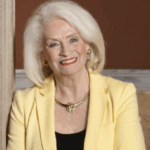 In Memoriam: Longtime Jefferson County Clerk Bobbie Holsclaw has died. She was 81 years old. Holsclaw was first elected in 1998 to lead the office responsible for overseeing elections in Jefferson County. The office, which has more than 275 employees, also manages records for vehicle tags, marriage licenses and property deeds. “For over two decades, Bobbie served the citizens of Jefferson County with integrity and honor,” a press release from the office read. “Throughout her distinguished career, Bobbie made lasting contributions through her work at the Clerk’s Office, leaving an indelible mark on this community with her many accomplishments. As a public servant, Bobbie leaves behind a legacy of leadership, compassion, and integrity.” Holsclaw’s accomplishments include modernizing the Jefferson County Clerk’s office by making the transition to online services and reorganizing departments to improve efficiency, according to the Jefferson County Clerk website. Holsclaw was a member of the Kentucky County Clerk’s Association and previously served on the board of directors of the National Association of County Recorders, Election Officials and Clerks, according to the office’s website. She has received multiple awards for her public service, including the 2007 “Most Admired Woman” in the political category by Today’s Women Magazine readers. U.S. Sen. Mitch McConnell said in a statement that Holsclaw’s “effective leadership made local government accessible, reliable, and responsible for all Jefferson County residents.” “Bobbie’s drive for excellence touched everything she did, and we all greatly benefited from her nationally-recognized service,” McConnell said. “Time and again, Bobbie earned the trust of her constituents, and she upheld the integrity and dignity of her office each and every day.”
In Memoriam: Longtime Jefferson County Clerk Bobbie Holsclaw has died. She was 81 years old. Holsclaw was first elected in 1998 to lead the office responsible for overseeing elections in Jefferson County. The office, which has more than 275 employees, also manages records for vehicle tags, marriage licenses and property deeds. “For over two decades, Bobbie served the citizens of Jefferson County with integrity and honor,” a press release from the office read. “Throughout her distinguished career, Bobbie made lasting contributions through her work at the Clerk’s Office, leaving an indelible mark on this community with her many accomplishments. As a public servant, Bobbie leaves behind a legacy of leadership, compassion, and integrity.” Holsclaw’s accomplishments include modernizing the Jefferson County Clerk’s office by making the transition to online services and reorganizing departments to improve efficiency, according to the Jefferson County Clerk website. Holsclaw was a member of the Kentucky County Clerk’s Association and previously served on the board of directors of the National Association of County Recorders, Election Officials and Clerks, according to the office’s website. She has received multiple awards for her public service, including the 2007 “Most Admired Woman” in the political category by Today’s Women Magazine readers. U.S. Sen. Mitch McConnell said in a statement that Holsclaw’s “effective leadership made local government accessible, reliable, and responsible for all Jefferson County residents.” “Bobbie’s drive for excellence touched everything she did, and we all greatly benefited from her nationally-recognized service,” McConnell said. “Time and again, Bobbie earned the trust of her constituents, and she upheld the integrity and dignity of her office each and every day.”
New Research and Resources
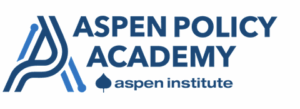 Overseas Voting Case Study: Aspen Policy Academy fellow Hilary Braseth credits her Aspen Tech Policy Hub experience with helping her impact policy through a Hub project and making a major career shift as a result. Beginning at the Hub, Hilary spearheaded a project aimed at improving the voting process for US citizens living abroad, who often face challenges with accessing and mailing in their ballots. By using an online wizard to help overseas voters navigate their state laws and leverage technology to more clearly communicate about how to vote, Hilary helped state election officials better inform overseas voters about the absentee voting process. After her fellowship, Hilary transitioned into the public sector, continuing her work helping voters as the Executive Director of OpenSecrets, an organization seeking greater transparency about elections funding. Read the above case study to learn more about Hilary’s experience.
Overseas Voting Case Study: Aspen Policy Academy fellow Hilary Braseth credits her Aspen Tech Policy Hub experience with helping her impact policy through a Hub project and making a major career shift as a result. Beginning at the Hub, Hilary spearheaded a project aimed at improving the voting process for US citizens living abroad, who often face challenges with accessing and mailing in their ballots. By using an online wizard to help overseas voters navigate their state laws and leverage technology to more clearly communicate about how to vote, Hilary helped state election officials better inform overseas voters about the absentee voting process. After her fellowship, Hilary transitioned into the public sector, continuing her work helping voters as the Executive Director of OpenSecrets, an organization seeking greater transparency about elections funding. Read the above case study to learn more about Hilary’s experience.
Ballot Measures, Legislation & Rulemaking
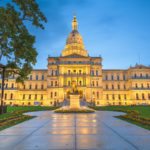 Michigan: A Senate committee moved forward bills to outlaw political petition circulators being paid by the signature as part of a package of election fraud and disinformation deterrents. The goal is to discourage abuses such as circulators lying or forging names to boost their signature counts. “Each election cycle provides new reporting of bad actors using deception and dishonesty as the tools to garner signatures for their cause,” said Senator Jeremy Moss (D-Southfield), chair of the Senate Elections and Ethics Committee. Moss noted Michigan is behind other states that have already enacted protections against political petition fraud. He said an overhaul of what’s allowed and not allowed by paid petition circulators in Michigan is long overdue. Another bill in the package would create penalties for spreading disinformation on where, when or how to vote. The bills were adopted with only the support of Democrats on the committee. Senator Ruth Johnson (R-Groveland Township) – a former Michigan Secretary of State – said she understands the intent of the legislation. The bills now go to the Senate floor. Similar bills cleared the Senate last year, but were never taken up by the House before the session ended in December.
Michigan: A Senate committee moved forward bills to outlaw political petition circulators being paid by the signature as part of a package of election fraud and disinformation deterrents. The goal is to discourage abuses such as circulators lying or forging names to boost their signature counts. “Each election cycle provides new reporting of bad actors using deception and dishonesty as the tools to garner signatures for their cause,” said Senator Jeremy Moss (D-Southfield), chair of the Senate Elections and Ethics Committee. Moss noted Michigan is behind other states that have already enacted protections against political petition fraud. He said an overhaul of what’s allowed and not allowed by paid petition circulators in Michigan is long overdue. Another bill in the package would create penalties for spreading disinformation on where, when or how to vote. The bills were adopted with only the support of Democrats on the committee. Senator Ruth Johnson (R-Groveland Township) – a former Michigan Secretary of State – said she understands the intent of the legislation. The bills now go to the Senate floor. Similar bills cleared the Senate last year, but were never taken up by the House before the session ended in December.
 Nevada Ballot Measures: Vote Nevada PAC, a grassroots group of Nevadans, has filed a proposed ballot measure to establish an independent redistricting commission and prohibit mid-cycle redistricting. The group also filed a second proposed ballot question to amend the state’s Voter Bill of Rights to include a provision that could force the two major political parties to open their primaries. Both petitions were filed with the Nevada Secretary of State’s Office on Tuesday, according to members of the political action committee. Both proposals involve amending the Nevada State Constitution, meaning if they qualify for the ballot, they will have to be approved by voters twice in subsequent elections — 2026 and 2028. The independent redistricting commission proposed by Vote Nevada would be composed of a mix of Democrats, Republicans, and non-major-party voters, reflecting active voter registration splits in the state. Currently in Nevada, redistricting is the purview of the Nevada State Legislature. The proposed ballot question would limit redistricting to the 180 days following the release of the U.S. Census, essentially barring mid-cycle redistricting efforts. Vote Nevada filed proposed ballot measures to form an independent redistricting commission — in 2020, 2022, and 2024. All three efforts failed to make it in front of voters, either because opponents successfully challenged it in court or because they failed to gather enough signatures to qualify for the ballot.
Nevada Ballot Measures: Vote Nevada PAC, a grassroots group of Nevadans, has filed a proposed ballot measure to establish an independent redistricting commission and prohibit mid-cycle redistricting. The group also filed a second proposed ballot question to amend the state’s Voter Bill of Rights to include a provision that could force the two major political parties to open their primaries. Both petitions were filed with the Nevada Secretary of State’s Office on Tuesday, according to members of the political action committee. Both proposals involve amending the Nevada State Constitution, meaning if they qualify for the ballot, they will have to be approved by voters twice in subsequent elections — 2026 and 2028. The independent redistricting commission proposed by Vote Nevada would be composed of a mix of Democrats, Republicans, and non-major-party voters, reflecting active voter registration splits in the state. Currently in Nevada, redistricting is the purview of the Nevada State Legislature. The proposed ballot question would limit redistricting to the 180 days following the release of the U.S. Census, essentially barring mid-cycle redistricting efforts. Vote Nevada filed proposed ballot measures to form an independent redistricting commission — in 2020, 2022, and 2024. All three efforts failed to make it in front of voters, either because opponents successfully challenged it in court or because they failed to gather enough signatures to qualify for the ballot.
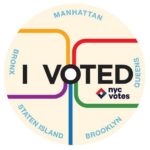 New York Ballot Measure: On the New York City ballot this November voters are being asked whether they want to change the timing of future municipal elections to even-numbered years. The measure, known for now as Question 5, would align mayoral elections with the presidential race and reschedule contests for other offices like city council seats, which are up every two years. It was placed on the ballot by the city’s Charter Revision Commission, a 13-member body convened in December by Mayor Eric Adams to brainstorm possible changes. Question 5 is the commission’s only proposal that touches on how the city runs its elections. Ben Weinberg, public policy director of Citizens Union, a New York-based group that has long pushed this reform, says Question 5 isn’t just about increasing the number of voters. “Holding local elections during even-numbered years will elevate local issues,” he told Bolts Magazine. “This is the time where folks are more tuned into electoral politics, the time where most people follow political news.” According to Bolts, even if voters approve Question 5, New York lawmakers would still need to amend the state’s constitution, which currently does not allow cities to hold their local elections on even-numbered years. And since constitutional amendments must pass in two consecutive legislative sessions, and then be ratified in a statewide referendum, that process takes at least two years.
New York Ballot Measure: On the New York City ballot this November voters are being asked whether they want to change the timing of future municipal elections to even-numbered years. The measure, known for now as Question 5, would align mayoral elections with the presidential race and reschedule contests for other offices like city council seats, which are up every two years. It was placed on the ballot by the city’s Charter Revision Commission, a 13-member body convened in December by Mayor Eric Adams to brainstorm possible changes. Question 5 is the commission’s only proposal that touches on how the city runs its elections. Ben Weinberg, public policy director of Citizens Union, a New York-based group that has long pushed this reform, says Question 5 isn’t just about increasing the number of voters. “Holding local elections during even-numbered years will elevate local issues,” he told Bolts Magazine. “This is the time where folks are more tuned into electoral politics, the time where most people follow political news.” According to Bolts, even if voters approve Question 5, New York lawmakers would still need to amend the state’s constitution, which currently does not allow cities to hold their local elections on even-numbered years. And since constitutional amendments must pass in two consecutive legislative sessions, and then be ratified in a statewide referendum, that process takes at least two years.
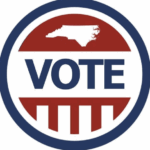 North Carolina Rulemaking: Voters whose names or birth dates don’t match ID numbers in the state registration file won’t automatically have to use provisional ballots after all, under revised instructions the state Board of Elections approved this week. The latest revisions to efforts to collect and validate government IDs come after Democrats on the state Board objected at its last meeting to the requirement that voters whose names or birth dates did not match identifiers in government databases would need to continually use provisional ballots until the mismatches were resolved. Under the plan, county election boards will review records for data errors. Beginning in January, letters will go out twice a year to voters whose ID numbers won’t validate, asking them for help figuring out why.
North Carolina Rulemaking: Voters whose names or birth dates don’t match ID numbers in the state registration file won’t automatically have to use provisional ballots after all, under revised instructions the state Board of Elections approved this week. The latest revisions to efforts to collect and validate government IDs come after Democrats on the state Board objected at its last meeting to the requirement that voters whose names or birth dates did not match identifiers in government databases would need to continually use provisional ballots until the mismatches were resolved. Under the plan, county election boards will review records for data errors. Beginning in January, letters will go out twice a year to voters whose ID numbers won’t validate, asking them for help figuring out why.
 South Dakota: Legislators finalized rules this week allowing additional grounds for challenging a person’s right to vote in South Dakota. The rules, approved by the Interim Rules Review Committee, are a result of Senate Bill 185, which was signed into law in March. It expanded the justifications for challenging voter rights to include claims that a registered voter has died, is not a legal resident of the state or has voted or registered in another state. Previously, state law allowed challenges based on a person’s identity, a felony conviction or mental incompetency. Those challenges are still allowed. Based on the new rules, challengers must be registered to vote in the same county as the person they’re challenging on residency or out-of-state registration grounds, and must submit the challenge at least 90 days before an election. Challenges based on a person dying ahead of an election, being mentally incompetent or being imprisoned must be submitted by a South Dakota registered voter at least 30 days before an election. A challenge to a voter’s residency must include evidence that the voter is not a South Dakota resident, based on state election law. The challenger must provide, under a sworn oath in front of a notary, one of the following: A driver’s license or ID card issued by another state; A resident hunting, fishing or trapping license issued by another state; A postal change of address indicating the voter moved to another state; State or county property records indicating ownership of a primary residence in another state; Tax documents indicating the voter is a resident of another state; or A residency affidavit or certificate from another state. A challenge to a voter’s out-of-state registration or voting history must include a voter file from an election official in that state documenting the claim.
South Dakota: Legislators finalized rules this week allowing additional grounds for challenging a person’s right to vote in South Dakota. The rules, approved by the Interim Rules Review Committee, are a result of Senate Bill 185, which was signed into law in March. It expanded the justifications for challenging voter rights to include claims that a registered voter has died, is not a legal resident of the state or has voted or registered in another state. Previously, state law allowed challenges based on a person’s identity, a felony conviction or mental incompetency. Those challenges are still allowed. Based on the new rules, challengers must be registered to vote in the same county as the person they’re challenging on residency or out-of-state registration grounds, and must submit the challenge at least 90 days before an election. Challenges based on a person dying ahead of an election, being mentally incompetent or being imprisoned must be submitted by a South Dakota registered voter at least 30 days before an election. A challenge to a voter’s residency must include evidence that the voter is not a South Dakota resident, based on state election law. The challenger must provide, under a sworn oath in front of a notary, one of the following: A driver’s license or ID card issued by another state; A resident hunting, fishing or trapping license issued by another state; A postal change of address indicating the voter moved to another state; State or county property records indicating ownership of a primary residence in another state; Tax documents indicating the voter is a resident of another state; or A residency affidavit or certificate from another state. A challenge to a voter’s out-of-state registration or voting history must include a voter file from an election official in that state documenting the claim.
Legal Updates
 Alaska: Ten Alaska residents pleaded not guilty last week to voter misconduct or other charges in cases that have renewed attention on the complex citizenship status of people born in the U.S. territory of American Samoa. Those facing charges — most of them related to one another — were born in American Samoa but live in the isolated Alaska community of Whittier, about 60 miles (96 kilometers) south of Anchorage. The state contends they falsely claimed U.S. citizenship when registering or attempting to vote. An attorney representing the defendants says many of them are citizens. American Samoa is the only U.S. territory where residents are not automatically granted citizenship by being born on American soil, as the 14th Amendment to the Constitution dictates. Instead, they are considered U.S. nationals. American Samoans can serve in the military, obtain U.S. passports and vote in elections in American Samoa. But they cannot hold public office in the U.S. or participate in most U.S. elections. A grand jury this week returned indictments with felony and misdemeanor counts, almost a year after Alaska State Troopers descended on Whittier to deliver court summonses. Matt DiTullio, an assistant public defender representing the 10, told a judge that most of them are U.S. citizens — information he said he has shared with prosecutors. Jenna Gruenstein, an attorney with the state Office of Special Prosecutions, pushed back, saying it was her understanding that the state had asked for evidence to back up DiTullio’s argument but that the state has yet to receive that.
Alaska: Ten Alaska residents pleaded not guilty last week to voter misconduct or other charges in cases that have renewed attention on the complex citizenship status of people born in the U.S. territory of American Samoa. Those facing charges — most of them related to one another — were born in American Samoa but live in the isolated Alaska community of Whittier, about 60 miles (96 kilometers) south of Anchorage. The state contends they falsely claimed U.S. citizenship when registering or attempting to vote. An attorney representing the defendants says many of them are citizens. American Samoa is the only U.S. territory where residents are not automatically granted citizenship by being born on American soil, as the 14th Amendment to the Constitution dictates. Instead, they are considered U.S. nationals. American Samoans can serve in the military, obtain U.S. passports and vote in elections in American Samoa. But they cannot hold public office in the U.S. or participate in most U.S. elections. A grand jury this week returned indictments with felony and misdemeanor counts, almost a year after Alaska State Troopers descended on Whittier to deliver court summonses. Matt DiTullio, an assistant public defender representing the 10, told a judge that most of them are U.S. citizens — information he said he has shared with prosecutors. Jenna Gruenstein, an attorney with the state Office of Special Prosecutions, pushed back, saying it was her understanding that the state had asked for evidence to back up DiTullio’s argument but that the state has yet to receive that.
 California: Laura Lee Yourex, 62, of Costa Mesa faces five felony charges after she was accused of fraud by registering her dog to vote and illegally casting ballots for the pooch in two elections, authorities said. Yourex allegedly mailed in ballots registered under her dog’s name, Maya Jean Yourex, in the 2021 gubernatorial recall election and the 2022 primary election, according to the Orange County district attorney’s office. The 2021 ballot was accepted, while the 2022 ballot was rejected, prosecutors said. Yourex allegedly bragged about the feat on social media, sharing a picture of Maya toting an “I Voted” sticker and posing with the illegal ballot in January 2022, prosecutors said. In October, Yourex posted a photo of Maya’s dog tag and a vote-by-mail ballot with the caption, “Maya is still getting her ballot,” even though the dog had passed away. She has been charged with one count of registering a nonexistent person to vote, one count of perjury, one count of procuring a false or forged document to be filed and two counts of casting a ballot when not entitled to vote, prosecutors said. If convicted as charged, Yourex faces up to six years in state prison.
California: Laura Lee Yourex, 62, of Costa Mesa faces five felony charges after she was accused of fraud by registering her dog to vote and illegally casting ballots for the pooch in two elections, authorities said. Yourex allegedly mailed in ballots registered under her dog’s name, Maya Jean Yourex, in the 2021 gubernatorial recall election and the 2022 primary election, according to the Orange County district attorney’s office. The 2021 ballot was accepted, while the 2022 ballot was rejected, prosecutors said. Yourex allegedly bragged about the feat on social media, sharing a picture of Maya toting an “I Voted” sticker and posing with the illegal ballot in January 2022, prosecutors said. In October, Yourex posted a photo of Maya’s dog tag and a vote-by-mail ballot with the caption, “Maya is still getting her ballot,” even though the dog had passed away. She has been charged with one count of registering a nonexistent person to vote, one count of perjury, one count of procuring a false or forged document to be filed and two counts of casting a ballot when not entitled to vote, prosecutors said. If convicted as charged, Yourex faces up to six years in state prison.
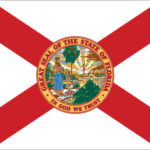 Florida: Jessica Sonia Humphreys, 24, of Miami, is charged with 72 counts of petition fraud and 72 counts of perjury. In January of 2023, FDLE agents were made aware of “numerous fraudulent petitions” for the constitutional amendment regarding the use of marijuana. Humphreys, a paid petition gatherer for “Safe and Smart Florida,” submitted the petitions. The Santa Rosa County Supervisor of Elections notified agents that Humphreys submitted other potentially fraudulent petitions using fictitious names. Agents with the FDLE made contact with Humphreys, who admitted she was a “paid petition gatherer for several counties in North Florida, including Escambia and Santa Rosa.” Two arrest warrants, one for Escambia County and the other for Santa Rosa County, were issued for Humphreys in November 2023. She was arrested on Jan. 29, 2024, by the Santa Rosa County Sheriff’s Office on 34 counts of petition fraud and 34 counts of perjury. After posting bail, she did not appear at her scheduled court hearing. During a traffic stop on Aug. 15, 2025, the Coral Springs Police Department later arrested Humphreys on 38 counts of petition fraud and 38 counts of perjury.
Florida: Jessica Sonia Humphreys, 24, of Miami, is charged with 72 counts of petition fraud and 72 counts of perjury. In January of 2023, FDLE agents were made aware of “numerous fraudulent petitions” for the constitutional amendment regarding the use of marijuana. Humphreys, a paid petition gatherer for “Safe and Smart Florida,” submitted the petitions. The Santa Rosa County Supervisor of Elections notified agents that Humphreys submitted other potentially fraudulent petitions using fictitious names. Agents with the FDLE made contact with Humphreys, who admitted she was a “paid petition gatherer for several counties in North Florida, including Escambia and Santa Rosa.” Two arrest warrants, one for Escambia County and the other for Santa Rosa County, were issued for Humphreys in November 2023. She was arrested on Jan. 29, 2024, by the Santa Rosa County Sheriff’s Office on 34 counts of petition fraud and 34 counts of perjury. After posting bail, she did not appear at her scheduled court hearing. During a traffic stop on Aug. 15, 2025, the Coral Springs Police Department later arrested Humphreys on 38 counts of petition fraud and 38 counts of perjury.
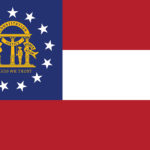 Georgia: U.S. District Judge J. P. Boulee has rejected a challenge to absentee ballot restrictions implemented under a controversial measure passed in 2021, delivering a blow to one of the last ongoing lawsuits against the sweeping election law. The law, passed as Senate Bill 202, included new provisions that prevented voter registration organizations from distributing pre-filled absentee ballot applications to voters or blank applications to any resident who had already requested an absentee ballot — as happened in 2020. Plaintiffs in the lawsuit argued that the restrictions infringed upon their First Amendment rights. In a 50-page decision issued by Boulee upheld the law’s absentee ballot application provisions, ruling that the use of pre-filled absentee ballot applications increased confusion among voters and that the secretary of state’s office had demonstrated “interrelated compelling governmental interests” in curtailing their use. “The prefilled absentee-ballot applications sparked confusion and concern about voter fraud, especially when the prefilled information was incorrect,” he wrote in his decision. “Voters complained or were confused about duplicate applications as well.”
Georgia: U.S. District Judge J. P. Boulee has rejected a challenge to absentee ballot restrictions implemented under a controversial measure passed in 2021, delivering a blow to one of the last ongoing lawsuits against the sweeping election law. The law, passed as Senate Bill 202, included new provisions that prevented voter registration organizations from distributing pre-filled absentee ballot applications to voters or blank applications to any resident who had already requested an absentee ballot — as happened in 2020. Plaintiffs in the lawsuit argued that the restrictions infringed upon their First Amendment rights. In a 50-page decision issued by Boulee upheld the law’s absentee ballot application provisions, ruling that the use of pre-filled absentee ballot applications increased confusion among voters and that the secretary of state’s office had demonstrated “interrelated compelling governmental interests” in curtailing their use. “The prefilled absentee-ballot applications sparked confusion and concern about voter fraud, especially when the prefilled information was incorrect,” he wrote in his decision. “Voters complained or were confused about duplicate applications as well.”
 New York: According to Courthouse News Service, the New York Court of Appeals appeared hesitant to block a state law that would move certain elections from odd- to even-numbered years in an effort to boost voter turnout. Attorneys for Republican-led challengers of the law, which include several New York counties and voters, spent nearly two hours trying to convince a skeptical court that the law was improperly passed and would unduly burden their clients. “We are alleging that those voters will face longer lines, they will face more confusion, and they will face a harder time getting their fellow citizens interested,” plaintiffs’ attorney Misha Tseytlin argued. As it stands, local elections in New York take place in odd-numbered years, while statewide and national ones are reserved for even-numbered years. But the law, passed by the New York state legislature and signed by Governor Kathy Hochul at the end of 2023, would consolidate local races to even-numbered years, with the other elections starting this year. The court’s seven-judge panel seemed puzzled by Tseytlin’s arguments. “Your allegation is that in an even-year election, voters who would have otherwise voted in an odd-year election will just not bother to vote because it’s an even-year election?” asked Associate Judge of the Court of Appeals Anthony Cannataro. “We don’t make that allegation,” Tseytlin shot back. “The allegation we make is that the voters who don’t care about the local elections to begin with wouldn’t bother coming out to the local elections; a lot of them are going to drop off.” “I hear some skepticism from the bench,” Tseytlin added. Much of that skepticism came from Judge of the Court of Appeals Jenny Rivera, who was hesitant as to whether the court could address these issues at all since they’re contrary to the conclusions drawn by the state Legislature when it passed the law. Rivera questioned whether the judicial panel could “make a different decision from the state legislators.” Tseytlin insisted that all First and 14th Amendment cases give courts the option to “second-guess” a legislative body. Assistant Solicitor General Sarah Rosenbluth, who argued for the even-year election law on behalf of the state, shot down Tseytlin’s concerns as meritless hypotheticals.
New York: According to Courthouse News Service, the New York Court of Appeals appeared hesitant to block a state law that would move certain elections from odd- to even-numbered years in an effort to boost voter turnout. Attorneys for Republican-led challengers of the law, which include several New York counties and voters, spent nearly two hours trying to convince a skeptical court that the law was improperly passed and would unduly burden their clients. “We are alleging that those voters will face longer lines, they will face more confusion, and they will face a harder time getting their fellow citizens interested,” plaintiffs’ attorney Misha Tseytlin argued. As it stands, local elections in New York take place in odd-numbered years, while statewide and national ones are reserved for even-numbered years. But the law, passed by the New York state legislature and signed by Governor Kathy Hochul at the end of 2023, would consolidate local races to even-numbered years, with the other elections starting this year. The court’s seven-judge panel seemed puzzled by Tseytlin’s arguments. “Your allegation is that in an even-year election, voters who would have otherwise voted in an odd-year election will just not bother to vote because it’s an even-year election?” asked Associate Judge of the Court of Appeals Anthony Cannataro. “We don’t make that allegation,” Tseytlin shot back. “The allegation we make is that the voters who don’t care about the local elections to begin with wouldn’t bother coming out to the local elections; a lot of them are going to drop off.” “I hear some skepticism from the bench,” Tseytlin added. Much of that skepticism came from Judge of the Court of Appeals Jenny Rivera, who was hesitant as to whether the court could address these issues at all since they’re contrary to the conclusions drawn by the state Legislature when it passed the law. Rivera questioned whether the judicial panel could “make a different decision from the state legislators.” Tseytlin insisted that all First and 14th Amendment cases give courts the option to “second-guess” a legislative body. Assistant Solicitor General Sarah Rosenbluth, who argued for the even-year election law on behalf of the state, shot down Tseytlin’s concerns as meritless hypotheticals.
Former New York City candidate for mayor Jim Walden filed a lawsuit this week against the city’s board of elections for refusing to pull his name from the ballot despite suspending his campaign. Walden, once a longshot independent candidate, dropped out of the race last week. Walden claims the city elections board refused to pull his name from the ballot, even though he withdrew from the mayor’s race before the certification deadline. “Calling the application ‘late,’ respondents cited no authority for this determination,” Walden argues. Walden, a private attorney, filed the complaint himself in the New York Supreme Court. He’s seeking emergency relief to pull his name off the ballot as soon as possible to “avoid voter confusion.”
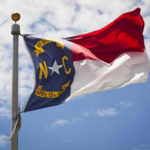 North Carolina: U.S. District Judge Richard Myers approved a plan to settle a lawsuit filed by President Donald Trump’s Justice Department that demanded North Carolina election officials accumulate identification numbers lacking on the records of more than 100,000 registered voters. Myers signed the proposed consent agreement filed a few days ago by lawyers for the department’s Civil Rights Division and the State Board of Elections. They said would it ensure the state’s compliance with federal law and avoid an expensive trial. The May 27 lawsuit accused the state board of violating the Help America Vote Act by failing to ensure registration records were accurate for federal elections. The state board already initiated a “Registration Repair Project” in mid-July, asking that 103,000 registered voters supply missing numerical identifiers or state that they don’t have one. There are close to 7.6 million registered voters in North Carolina, where statewide elections are often closely contested.
North Carolina: U.S. District Judge Richard Myers approved a plan to settle a lawsuit filed by President Donald Trump’s Justice Department that demanded North Carolina election officials accumulate identification numbers lacking on the records of more than 100,000 registered voters. Myers signed the proposed consent agreement filed a few days ago by lawyers for the department’s Civil Rights Division and the State Board of Elections. They said would it ensure the state’s compliance with federal law and avoid an expensive trial. The May 27 lawsuit accused the state board of violating the Help America Vote Act by failing to ensure registration records were accurate for federal elections. The state board already initiated a “Registration Repair Project” in mid-July, asking that 103,000 registered voters supply missing numerical identifiers or state that they don’t have one. There are close to 7.6 million registered voters in North Carolina, where statewide elections are often closely contested.
 Pennsylvania: Miya Pack, 39, of Philadelphia, committed voter fraud after she voted in New Jersey and her home state of Pennsylvania, federal prosecutors said. Pack was charged with one count of voter fraud, according to a statement released Monday from the U.S. Attorney’s Office Eastern District of Pennsylvania. Pack had been registered to vote in Bergen County since 2004 and in Philadelphia County since 2016, the office said. On or about Oct. 26, 2024, she voted in person at an early voting location in Teaneck for president in the 2024 general election, investigators said. On Election Day, Nov. 5, 2024, Pack went to a polling place in Philadelphia County, Pennsylvania, and cast another ballot for president, federal prosecutors said. She faces a maximum possible sentence of five years in prison and a fine of between $10,000 and $250,000, the office said.
Pennsylvania: Miya Pack, 39, of Philadelphia, committed voter fraud after she voted in New Jersey and her home state of Pennsylvania, federal prosecutors said. Pack was charged with one count of voter fraud, according to a statement released Monday from the U.S. Attorney’s Office Eastern District of Pennsylvania. Pack had been registered to vote in Bergen County since 2004 and in Philadelphia County since 2016, the office said. On or about Oct. 26, 2024, she voted in person at an early voting location in Teaneck for president in the 2024 general election, investigators said. On Election Day, Nov. 5, 2024, Pack went to a polling place in Philadelphia County, Pennsylvania, and cast another ballot for president, federal prosecutors said. She faces a maximum possible sentence of five years in prison and a fine of between $10,000 and $250,000, the office said.
 South Carolina: Gov. Henry McMaster said his office has filed a motion to intervene in a lawsuit and temporary restraining order involving the State’s Election Commission (SEC) and a South Carolina voter, Dr. Anne Crook. The lawsuit was filed by Crook, a Calhoun County resident, in response to a formal request from the U.S. Department of Justice (DO.J) for detailed voter information. In August, the DOJ asked the South Carolina Election Commission to provide a full data voter list, including the last four digits of each voter’s Social Security number and full driver’s license numbers. The DOJ initially set a deadline of August 21st for the SEC, but the commission was granted several extensions. Crook argues that complying with the DOJ’s request would violate state privacy laws. However, McMaster said the complaint overlooks key federal statutes that authorize such data requests.
South Carolina: Gov. Henry McMaster said his office has filed a motion to intervene in a lawsuit and temporary restraining order involving the State’s Election Commission (SEC) and a South Carolina voter, Dr. Anne Crook. The lawsuit was filed by Crook, a Calhoun County resident, in response to a formal request from the U.S. Department of Justice (DO.J) for detailed voter information. In August, the DOJ asked the South Carolina Election Commission to provide a full data voter list, including the last four digits of each voter’s Social Security number and full driver’s license numbers. The DOJ initially set a deadline of August 21st for the SEC, but the commission was granted several extensions. Crook argues that complying with the DOJ’s request would violate state privacy laws. However, McMaster said the complaint overlooks key federal statutes that authorize such data requests.
 Texas: The Republican Party of Texas filed a lawsuit against Texas Secretary of State Jane Nelson in a bid to restrict participation in the GOP’s primary elections to only voters registered with the party. The lawsuit, filed in federal district court, claims Texas’ open primaries violate the Republican Party’s First Amendment associational rights to choose party leaders. The GOP said in its suit that it would prefer the Legislature to pass a law allowing only registered party members to vote in primary elections, but that it could not wait for lawmakers to act. “[G]iven the steps necessary to transition to a fully closed primary in an orderly fashion, the Party cannot continue to wait and risk further political inaction and delay that could lead to open primaries (or even a bridge election) in 2028 as well,” the lawsuit read. The Secretary of State’s office is reviewing the suit, but that preparations for the primary election on March 3 were already “well underway” based on current state law, a spokesperson said in a statement to the Texas Tribune. “As always, the Secretary of State’s Office is committed to fair, orderly and legal elections,” a spokesperson for the secretary’s office said.
Texas: The Republican Party of Texas filed a lawsuit against Texas Secretary of State Jane Nelson in a bid to restrict participation in the GOP’s primary elections to only voters registered with the party. The lawsuit, filed in federal district court, claims Texas’ open primaries violate the Republican Party’s First Amendment associational rights to choose party leaders. The GOP said in its suit that it would prefer the Legislature to pass a law allowing only registered party members to vote in primary elections, but that it could not wait for lawmakers to act. “[G]iven the steps necessary to transition to a fully closed primary in an orderly fashion, the Party cannot continue to wait and risk further political inaction and delay that could lead to open primaries (or even a bridge election) in 2028 as well,” the lawsuit read. The Secretary of State’s office is reviewing the suit, but that preparations for the primary election on March 3 were already “well underway” based on current state law, a spokesperson said in a statement to the Texas Tribune. “As always, the Secretary of State’s Office is committed to fair, orderly and legal elections,” a spokesperson for the secretary’s office said.
Opinions This Week
National Opinions: Voting rights | Voter ID | GOTV | Vote by mail, II | 2026 | Conspiracy theories | Voting Rights Act | Voting data
Alaska: Ranked choice voting
California: Election advice
Colorado: Vote by mail
Connecticut: Federal interference
Florida: Voting Rights Act | Smooth & successful elections | Election security funding
Indiana: Vote centers | Accessibility | Voter data
Iowa: Primaries
New Mexico: Absentee ballots
Ohio: Election legislation | Election confidence
Oregon: Voter registration issues
Washington: Vote by mail
Wisconsin: Drop boxes, II
Call for Papers and Proposals
Call for Session Proposals for the Students Learn Students Vote Coalition’s 2025 National Student Vote Summit: The Students Learn Students Vote (SLSV) Coalition invites session proposals for the 2025 National Student Vote Summit (NSVS) — our annual nonpartisan in-person gathering of students, campus professionals, nonprofit partners, and movement leaders committed to ensuring that every college student has easy and equal access to participate in every election. This year’s summit will bring us together to reflect on where our nonpartisan movement stands, explore urgent challenges, and build the shared strategies we need heading into 2026 and beyond. We’re seeking session proposals that offer practical tools, bold ideas, and community-rooted insights to help attendees strengthen their nonpartisan student voting work. Please note: This Request for Proposals (RFP) is separate from the student poster session proposal process. Poster sessions are reserved for student presenters only and follow a different submission process, which you can find outlined [here]. Students are welcome to be part of a session proposal through this RFP only if they are collaborating with a campus staff/faculty member, or a nonprofit staff member. In those cases, the proposal must be submitted by the staff or faculty collaborator. If you’re a student who does not currently have a faculty, staff, or nonprofit collaborator but have a session idea you’d like to propose, please reach out to Bianca at bianca@slsvcoalition.org. We’re happy to work with you to identify a potential partner. Deadline: September 15.
Upcoming Events
The Risk of Federal Interference in the 2026 Midterm Elections: The Safeguarding Democracy Project at UCLA Law promotes research, collaboration, and advocacy aimed at ensuring continued free and fair elections in the United States. This webinar will be moderated by Rick Hasen and feature: Ben Haiman, executive director, Center for Public Safety and Justice·UVA Center for Public Safety and Justice; Liz Howard director of Partner Engagement, Elections & Government·NYU Law Brennan Center for Justice; and Stephen Richer, senior practice fellow in American Democracy, Spring 2025·Ash Center for Democratic Governance and Innovation, Harvard Kennedy School. When: September 16, 3:15pm Eastern. Where: Online.
Public Trust In Elections: Join Votebeat for a conversation on public trust in elections with an elections expert and two experienced election officials. Moderated by Votebeat Editorial Director Jessica Huseman, you’ll learn about the state of public trust in elections, and the factors that influence it. Panelists are: Charles Stewart III, Kenan Sahin Distinguished Professor of Political Science at MIT; Seth Bluestein, Philadelphia City Commissioner; and Karen Brinson Bell, former executive director of the North Carolina State Board of Elections. When: September 19, 12pm Eastern. Where: Online.
Wyoming Association of County Officers Conference: When: September 23-25. Where: Rock Springs.
Lessons from the 2024 Elections for 2026 and Beyond: A Conversation with Nate Persily: The Safeguarding Democracy Project at UCLA Law promotes research, collaboration, and advocacy aimed at ensuring continued free and fair elections in the United States. This webinar will be a conversation with Nate Persily, Stanford Law School & Rick Hasen, UCLA School of Law. When: October 7, 3:15pm Eastern. Where: Online.
Leah Litman on the Supreme Court: University of Michigan Law School Professor Leah Litman will discuss her provocative new book Lawless: How the Supreme Court Runs on Conservative Grievance, Fringe Theories, and Bad Vibes, which argues that the Court has abandoned legal reasoning in favor of political grievances dressed up in judicial language. With her signature blend of serious legal analysis and irreverent wit, Litman will discuss how major Supreme Court decisions are made. Litman will be in dialogue with UCLA Law Professor Rick Hasen. When: October 14, 7:30pm Pacific. Where: The Hammer Museum, Los Angeles.
Protecting the Election: AI and Governance Conference at WashU: Join us for this two-day in-person research and practitioner conference at WashU on October 16-17, 2025, to discuss research regarding AI and governance and how this applies to U.S. elections. Research topics include how chatbots can be used to engage with voters, how social media influences voters, what the electorate knew (or did not know) about the candidates and issues during recent elections, misinformation in elections, rhetoric about election integrity, and AI strategies for the administration of elections. We will also hear from practitioners during the conferences about their experiences with and needs for AI in recent elections and their intentions for future use of AI in elections. When: Oct. 16-17. Where: St. Louis.
Redistricting and Re-Redistricting Controversies and the 2026 Elections: The Safeguarding Democracy Project at UCLA Law promotes research, collaboration, and advocacy aimed at ensuring continued free and fair elections in the United States. This webinar will be moderated by Rick Hasen and feature: Guy-Uriel Charles, Harvard Law Moon Duchin, The Data and Democracy Lab Data and Democracy Research Initiative, U of Chicago Michael Li, NYU Law Brennan Center for Justice Nicholas Stephanopoulos, Harvard Law. When: October 16, 3:15pm Eastern. Where: Online.
Symposium at Auburn University: The 5th Biennial Auburn Symposium in Election Administration will be held October 26-28, 2025 at the Hotel at Auburn University. The Symposium launched in 2015 to foster conversation about critical issues that impact American democratic institutions, support the development of common understanding and language across diverse professional communities engaged in the practice of election administration, and promote dialogue between those who conduct elections and those who study the way elections operate. The series is held in odd-numbered years on the Auburn University campus. This year, the theme is Innovative Election Administration Funding Solutions, exploring new, practical, and sustainable solutions to address the critical issue of adequate funding of election administration across local, state, and/or federal levels in the United States. Questions: elect1@auburn.edu. When: October 26-28. Where: Auburn, Alabama.
NDACo Annual Conference [North Dakota]: When: October 26-28.
Media, Social Media, and the Changing Election Information Environment in 2026: The Safeguarding Democracy Project at UCLA Law promotes research, collaboration, and advocacy aimed at ensuring continued free and fair elections in the United States. This webinar will be moderated by Rick Hasen and feature: Danielle Citron, UVA Law, Brendan Nyhan, Dartmouth, and Amy Wilentz, UCI Emerita. When: October 30, 3:15pm Eastern. Where: Online.
2025 National Student Vote Summit– The Students Learn Students Vote Coalition is proud to host the 10th annual National Student Vote Summit. At the summit, we’ll unite nonprofit leaders, campus staff, administrators, faculty members, philanthropic partners, election officials, and students from across the country to continue a decade-strong tradition of collective action and impact. Building on the momentum and insights from our 2024 Summit—where more than 300 nonpartisan student vote leaders took on challenges like local election turnout, combating misinformation, and reducing post-election disengagement — this milestone gathering aims to amplify our collective power and chart a course for an even more impactful 2026. We’ll kick off the Summit with the ALL IN Campus Democracy Challenge Awards Ceremony, celebrating college student voting achievements nationwide and setting the stage for a memorable experience. Awards will be presented to college and university campuses, student leaders and individual champions for their nonpartisan contributions to increasing student voter engagement in the 2024 Election. Thanks to our incredible host partners at the University of Maryland, College Park, we’ll gather once again at UMD’s Stamp Student Union. There, in collaboration with TerpsVote, we’ll create an inspiring space for learning, connection, and celebration. Every participant will leave equipped with the tools, relationships, and momentum to make 2026 a historic year for nonpartisan student voter engagement. When: November 12-15. Where: College Park, Maryland.
57th Annual Tennessee County Officials Association (COAT) Conference: When: November 16-19. Where: Pigeon Forge.
The Supreme Court, the Voting Rights Act, and the 2026 Elections: The Safeguarding Democracy Project at UCLA Law promotes research, collaboration, and advocacy aimed at ensuring continued free and fair elections in the United States. This webinar will be moderated by Rick Hasen and feature: Ellen Katz, University of Michigan, Lenny Powell, Native American Rights Fund (NARF), and Deuel Ross, Legal Defense Fund. When: November 18, 3:15pm Eastern. Where: Online.
2025 New England Association of City and Town Clerks Conference: When: November 19-21. Where: Bangor, Maine.
JEOLC 2026: The Election Center will host the 2026 JEOLC conference at the Ritz Carlton in Pentagon City, Virginia from January 6-10. One CERA renewal class will be offered. Please visit the Election Center website for more information and to register when it’s available.
iGO Midwinter Conference: The International Association of Government Officials will hold its Midwinter Conference in Albuquerque, New Mexico from January 19-23, 2026. Please visit the iGO website for more information and to register.
2026 NASS Winter Conference: The National Association of Secretaries of State will hold its 2026 Winter Conference in Washington, DC from January 28-31. Please refer to the NASS website for more information about the event and to register.
2026 NASED Winter Conference: Twice a year, National Association of State Election Directors members gather to discuss the latest developments in election administration. Members of the public are welcome to attend at the non-member registration rate. Please refer to the NASED website for information about the 2026 Winter Conference. When: Feb. 1-3, 2026. Where: Washington, DC.
2026 NACo Legislative Conference: The National Association of Counties will hold its 2026 Legislative Conference in Washington, DC from February 21-24, 2026. Please visit the NACo website for more information about the event and to register.
Job Postings This Week
electionlineWeekly publishes election administration job postings each week as a free service to our readers. To have your job listed in the newsletter, please send a copy of the job description, including a web link to mmoretti@electionline.org. Job postings must be received by 5pm on Wednesday in order to appear in the Thursday newsletter. Listings will run for three weeks or till the deadline listed in the posting.
Administrative Specialist, King County, Washington – The Department of Elections is searching for energetic and resourceful professionals who like to “get stuff done”. The Administrative Specialist II positions in the Voter Services Department combines an exciting, fast-paced environment with the opportunity to cultivate talents and apply a variety of skills. The ideal candidate will have a desire to help ensure the democratic process through public service. They will thrive in an innovative environment and will not hesitate to roll up both sleeves, work hard, have fun, and get the job done. Job Duties: Provide excellent customer service to internal and external customers in person, via telephone, and via e-mail by processing voter registrations, communicating election program information and explaining election procedures, guidelines and regulations. Provide backup support for translation and/or interpreting and proof election-related documents and web materials from English to Chinese (traditional text). This includes but is not limited to voter registration information, letters, and other correspondence, notice of elections, ballot titles, voters’ pamphlet information, candidate statements, ballot measures, etc. to limited English speaking (LES) voters. Perform production-level computer work which includes accurate data entry, retrieving and editing records. Organize and coordinate work activities and assist with providing training and one-on-one instruction to diverse staff. Set up records and file documents in both electronic and paper formats. Review documents for proper format, accuracy, completion, eligibility, and other legal guidelines. Audit work group data entry activities to ensure performance quality and efficiency of work. Utilize spreadsheets, word documents and reports to track and document performance data. Research and resolve questions from staff, citizens and stakeholders. Document and improve work processes, procedures and instructions. Salary: $27.03 – $34.40 Hourly. Application: For the complete job listing and to apply, click here.
Assistant Registrar of Voters, Santa Clara County, California– Under general direction, the Assistant Registrar of Voters supports the planning, organization, and oversight of the County Registrar of Voters Department. This executive leadership position reports directly to the Registrar of Voters and plays a key role in administering and managing departmental operations. The department is responsible for voter registration, the conduct of elections, and related electoral services. The Assistant Registrar of Voters helps ensure that all activities are carried out efficiently, accurately, and in compliance with applicable laws and regulations. This position may assume the responsibility of the Department in the absence of the Registrar of Voters. Salary: $194,184.52 – $249,180.63. Application: For the complete job listing and to apply, click here.
Campaign Finance Specialist, West Virginia Secretary of State– The Campaign Finance Specialist focuses on managing general campaign finance system tasks, assisting candidates and the public with campaign finance inquiries, ensuring compliance with applicable laws including tracking and managing enforcement efforts for civil penalties and settlements, and advising public officials across various levels of government. This role also includes cross-training expectations for other aspects of the Elections Division including voter registration, list maintenance, election official training and materials, drafting and editing of guides, manuals, and procedures, and other duties as assigned. This role generally requires keen attention to detail, knowledge of or capacity to work in the Campaign Finance Reporting System and other computer-based programs, competency using Microsoft products including Sharepoint, Word, Excel, and PowerPoint. The standard work schedule for this position is Monday through Friday, 8:30 AM to 5:00 PM, and there must be a commitment to working as necessary during busy times such as Election Day, Saturdays of Early Voting Periods, campaign finance reporting periods, and at training conferences. Salary: $45,000. Deadline: September 19. Application: For the complete job listing and to apply, click here.
Data Scientist Manager, CIRCLE– This is a limited term position for two years, with the possibility of extension contingent on grant funding. This position is not eligible for severance pay. CIRCLE, the Center for Information & Research on Civic Learning and Engagement at Tisch College within Tufts University, is a non-partisan, independent research organization focused on youth civic engagement in the United States. CIRCLE conducts extensive research that examines how young people in the United States develop knowledge, skills, and dispositions for effective democratic engagement and leverages that research to improve opportunities for all young people to acquire and use the skills and knowledge they need to meaningfully participate in civic life. CIRCLE is especially concerned with understanding, addressing, and ultimately eliminating the systemic barriers that keep some young people marginalized from and underrepresented in civic life. CIRCLE covers a broad range of disciplines and fields, from K-12 civic education, youth voting, youth organizing, youth and civic media, to community characteristics that promote civic development. The Data Scientist/Manager serves as CIRCLE’s technical anchor for all data-intensive research initiatives, bridging advanced analytics with strategic leadership in youth civic engagement research. This role owns the full data lifecycle – from architecting robust systems for all record datasets to translating complex findings into policy-relevant insights. The position requires equal mastery of technical execution (R, SQL, BigQuery) and collaborative leadership, guiding both internal teams and external partners through data challenges in a fast-paced research environment. Salary Range: $79,600 to $119,500. Application: For the complete job listing and to apply, click here.
Deputy County Administrator / Auditor-Treasurer, Otter Tail County, Minnesota – Otter Tail County is seeking a full-time Deputy County Administrator / Auditor-Treasurer. This position will be part of the County Leadership Team overseeing the Finance, Property, and License Management Team and Countywide initiatives such as the Long-Range Strategic Plan. This position is responsible for overseeing and administering the duties and functions of an Auditor-Treasurer including financial operations and policy development, property recordings, assessor, elections, property tax administration, state audits, tax increment financing, property forfeitures, and ensuring compliance with state and federal regulations. This position would fulfill the appointed duties of an Auditor-Treasurer. Under the direction of the County Administrator, the Deputy County Administrator assists in managing and administering the affairs of the county and carrying out the policies of the County Board. This position is responsible to provide oversight in the planning, development, management, coordination, delivery, and evaluation of multiple complex functions of one of four service teams in the county organization. Lead interdepartmental and interagency work teams to improve county service alignment and performance. Priorities include service alignment, leadership and accountability to county-wide board goals. The Deputy County Administrator acts on behalf of the County Administrator in that person’s absence. Salary: DOQ. Deadline: September 30. Application: For the complete job listing and to apply, click here.
Deputy of Elections, Yolo County, California– Under administrative direction of the Assessor/Clerk-Recorder/Registrar of Voters, the Deputy of Elections assists the Assessor/Clerk-Recorder/Registrar of Voters in the planning, administration, direction, and coordination of the Elections Branch; develops and implements program policy, procedures, and strategic initiatives; oversees major program areas and ensures compliance with applicable laws and regulations; assists the Assessor/Clerk-Recorder/Registrar of Voters with the administration and direction of the department; and may serve as an Assessor/Clerk-Recorder/Registrar of Voters designee or in their absence. An ideal candidate is a highly adaptable and meticulous elections professional with proven leadership experience navigating the rapid pace and strict deadlines of election administration. They possess strong technical skills and a proactive approach to problem-solving, ensuring the accurate and timely execution of all election-related duties. In addition, the following knowledge and abilities are associated with this position. Salary: $111,321.60 – $135,304.00 Annually. Application: For the complete job listing and to apply, click here.
Election Assistant, St. Charles County, Missouri – The purpose of this position is to assist the Director of Elections in the Administration of elections. Lead and train intermittent employees at all satellite voting sites. Set up and manage election equipment, on demand ballot printers, poll pad voter check in stations and ADA compliant ballot marking devices at satellite voting sites. Lead Initiative Petition temporary staff. This position acts under the supervision of the Assistant Director of Elections. Salary: $45,192.76. Application: For the complete job listing and to apply, click here.
Election Operations & Workforce Manager, Charleston County, South Carolina– The Board of Voter Registration and Elections is an award-winning organization dedicated to excellence in electoral processes. Our mission is to daily serve the Charleston County voting constituency with Vigilance, Objectivity, and Transparency in a manner that promotes due diligence Excellence in all aspects of Elections Management. We are committed to continuous improvement, innovative practices, and exceptional service to our community, ensuring every voter’s voice is heard. Are you driven by a passion for democracy and civic engagement? Join the Board of Voter Registration and Elections as the Election Operations and Workforce Manager and play a critical role in delivering seamless, fair, and accessible elections. Key Responsibilities: Poll Worker Recruitment and Management; Polling Location Management; Liaison and Community Engagement; Support for Election Operations on Election Day and Early Voting; and Team Leadership. Salary: $68,140 – $89,252. Application: For the complete job listing and to apply, click here.
Organizer, Minnesota– We are looking for a creative and collaborative Organizer to join the Common Cause team in Minnesota. This is a key role supporting our organizing and outreach programs and promoting civic engagement across the state. This is a full-time role reporting to the Executive Director, Minnesota and is based in Minnesota, with a preference for candidates located in Olmsted County or St. Cloud, with an expectation to travel around Minnesota at least 2 days per week, with a maximum of 5 days a calendar week during the legislative session, and peak summer engagement season. This is a termed position, starting on November 1, 2025 and ending October 31, 2027. Salary: $63,860 – $80,340 a year. Application: For the complete job listing and to apply, click here.
Policy Director & Counsel, Voting & Fair Representation, Common Cause– We are looking for a Policy Director & Counsel, Voting & Fair Representation to join our work to advance multi-state and federal policy wins on voting rights, election administration, and fair representation issues. This role will take ownership of issues within the Voting & Fair Representation pillar—from ideation through execution. The Policy Director & Counsel will collaborate with departments and teams across the organization, providing strategic guidance and legal analysis, conducting research to strategically support our issues, and amplifying our issues externally. This role is ideal for a proactive thinker who thrives on anticipating what’s next in the democracy landscape and translating research and analysis into actionable strategies. This is a full-time role reporting to the Senior Policy Director, Voting & Fair Representation; this role is remote anywhere within the lower 48 United States, though we have a strong preference for someone who is based in DC and who can work in our office at least two days per week. We hope our new Policy Director & Counsel will start in December. Salary: $108,150 – $128,750 a year. Application: For the complete job listing and to apply, click here.
Remote Sales Director, SOE Software– SOE Software is seeking a driven Sales Director to expand our modernization and transparency solutions for state and local governments. In this full-cycle sales role, you’ll own the process from lead generation through contract signing. You’ll represent SOE at conferences and events, confidently starting conversations and building lasting relationships with government officials. By connecting our technology to outcomes like transparency, accessibility, and public trust, you’ll help election offices and public agencies better serve their communities. Application: For the complete job listing and to apply, click here.
Research Associate, CEIR– CEIR is seeking a dedicated and qualified Research Associate – Data Analysis to join our team (highly qualified candidates may be considered for a Senior Research Associate position). The Research Associate will work under the direction of the Research Director and in collaboration with other colleagues to support CEIR’s research initiatives. These initiatives include research and data analysis related to election administration policy, procedures, and practices. As an integral member of the Research team, the Research Associate – Data Analysis will support CEIR’s mission by performing thoughtful data collection, analysis, and visualization for research reports, presentations, and other materials for CEIR’s diverse audience of election officials, policymakers, the media, and key stakeholders. Salary: $53,000-69,000. Deadline: September 15. Application: For the complete job listing and to apply, click here.
Senior Organizer, Colorado, Common Cause– We are seeking a proactive, collaborative, English and Spanish-speaking Senior Organizer to join the Common Cause team in Colorado. In 2025, Common Cause successfully led an effort to pass the nation’s 8th state-level Voting Rights Act. The Colorado Voting Rights Act protects Colorado from threats to dismantle the federal Voting Rights Act of 1965 and creates stronger protection against voter discrimination. The Colorado Senior Organizer will be critical in driving public education and voter outreach efforts around the new law and executing nonpartisan voter protection efforts in 2026. This is a full-time, fixed-term position for a period of 12 months, from November 15, 2025, to November 15, 2026. The role reports to the State Director and is based in Colorado with a preference for this individual to work out our Denver office at least 1 day per week. They will also travel to communities across the state on a frequent basis, with the possibility of occasional overnight travel. Salary: $72,100 – $89,610 a year. Application: For the complete job listing and to apply, click here.
Training Program Manager, Charleston County, South Carolina– Democracy works best when every election runs flawlessly—and that starts with exceptional training. As Training Manager for the Board of Voter Registration and Elections, you’ll empower our poll managers and staff to deliver elections that are fair, accessible, and trusted by every voter in Charleston County. The Board of Voter Registration and Elections is an award-winning organization dedicated to excellence in electoral processes. Our mission is to daily serve the Charleston County voting constituency with Vigilance, Objectivity, and Transparency in a manner that promotes due diligence Excellence in all aspects of Elections Management. We believe that people are the foundation of successful elections. That’s why training is not just a task—it’s a core function of our mission. When our teams are prepared, voters can be confident that their voice will be heard, and their ballot counted. As Training Manager, you are not simply teaching procedures—you are building trust in the democratic process. You will design and deliver training that helps every poll manager, staff member, and Board member understand the importance of their role, perform it with confidence, and meet the highest standards of service to our voters. Salary: $68,140.00 – $82,000.00 Annually. Application: For the complete job listing and to apply, click here.
Marketplace
electionline provides no guarantees as to the quality of the items being sold and the accuracy of the information provided about the sale items in the Marketplace. Ads are provided directly by sellers and are not verified by electionline. If you have an ad for Marketplace, please email it to: mmoretti@electionline.org